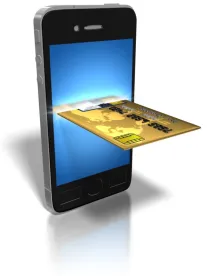Takeaway: If the Board construes a term differently than petitioner proposes, that may prevent the Board from ruling in petitioner’s favor on a ground of unpatentability.
In its Final Written Decision, the Board found that all challenged claims, claims 1-7, 9-13, 16-31, 33, and 34, of the ’875 Patent are unpatentable, and dismissed Patent Owner’s Motion to Exclude Evidence. The ’875 Patent discloses a “universal credit card” apparatus for allowing “access to numerous accounts, services, features, etc. with just one card thereby eliminating the need to carry, store or retain numerous cards.”
The Board began with claim construction. The ’875 Patent expired on April 3, 2015, therefore, the claims are interpreted just as a district court would review them. The Board first construed “telephone,” and found that the IEEE Dictionary definition was relevant. The Board adopted Patent Owner’s construction. The next term that the Board construed was “emitter . . . configured to communicate a signal,” and found that Patent Owner’s construction improperly incorporated a limitation from the specification into the claims. Next, the Board reviewed the term “transducer” as not being a purely functional limitation. Finally, the Board adopted its construction of “information related to at least one Identification Card Account” from its Decision on Institution.
The Board then turned to the grounds of unpatentability. As an initial matter, Patent Owner argued that “deference should be given” to the fact that Gutman, Pitroda, and Hennige were considered by the Examiner during prosecution. The Board noted that fact. It then discussed whether the challenged claims are anticipated by Kikinis. The Board was persuaded by Petitioner’s expert’s testimony that Kikinis discloses all the limitations of independent claims 1, 12, 13, and 14, as well as the remaining dependent claims.
Regarding the second ground – anticipation by Gutman – the Board found that claims 1-7, 9-13, 25-31, 33, and 34 require a “telephone,” and Gutman does not disclose a “telephone” as the Board has construed that term. Petitioner further relied upon the disclosure in D’Avello, which Gutman incorporates by reference. However, the Board found that Gutman does not state that its electronic wallet may include the telephone of D’Avello. The Board found that claims 14, 16-21, 23, and 24 do not require a telephone, and they are anticipated by Gutman.
Next, the Board reviewed whether claims 14 and 16-24 are anticipated by Pitroda. The Board found that Patent Owner had misconstrued the scope of claim 14, therefore, its arguments were not persuasive. The Board also credited Petitioner’s expert’s testimony.
The Board then turned to the next ground of unpatentability – anticipation by Hennige of claims 14, 16-21, 23, and 24. Again, the Board was persuaded by Petitioner’s expert’s testimony in finding that Hennige anticipates the challenged claims.
Finally, the Board addressed Patent Owner’s Motion to Exclude from evidence various exhibits. The Board dismissed the Motion noting that it did not rely upon any of those exhibits.
Square, Inc. v. J. Carl Cooper, IPR2014-00158
Paper 36: Final Written Decision
Dated: May 8, 2105
Patent 8,490,875 B2
Before: Jameson Lee, George R. Hoskins, and Kristina M. Kalan
Written by: Hoskins Related Proceedings: eCharge Licensing, LLC v. Square, Inc., No. 1:13-cv-06445 (N.D. Ill.); SCVNGR, Inc. v. eCharge Licensing, LLC, No. 1:13-cv-12418 (D. Mass.)



 />i
/>i

